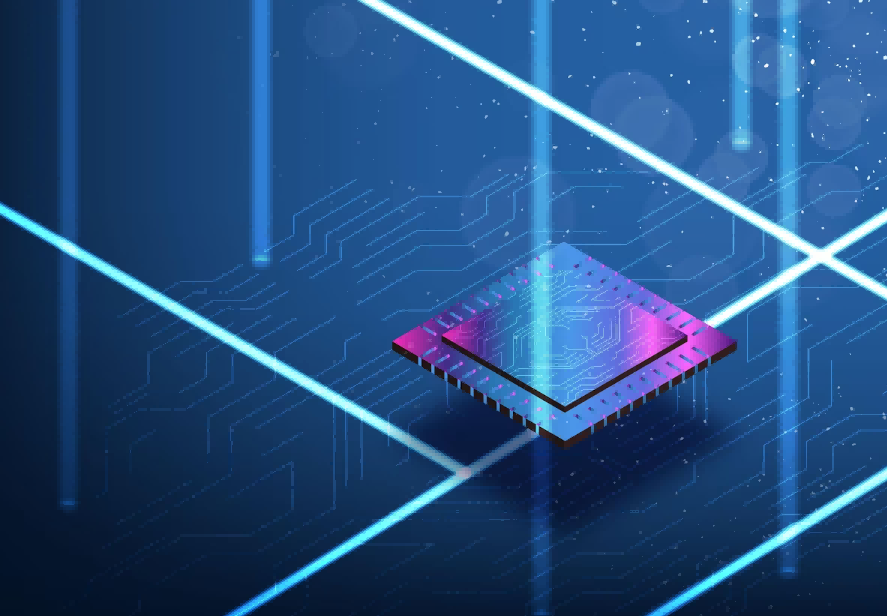 Trade Trends News
Trade Trends News
 04-09-2023
04-09-2023

The U.S. has extended export restrictions on advanced NVIDIA (NVDA.O) and Supermicro (AMD.O) artificial intelligence chips to regions other than China, including some countries in the Middle East.
NVIDIA said in a regulatory filing this week that the restrictions affect its A100 and H100 chips, which are designed to accelerate machine learning tasks, but will not have a "direct material impact" on its results.
Rival AMD also received a letter containing similar restrictions, a person familiar with the matter told Reuters, adding that the move would have no material impact on its revenue.
NVIDIA did not specify this week which countries in the Middle East were affected. Most of the company's $13.5 billion in sales for the fiscal quarter ended July 30 came from the U.S., China and Taiwan. About 13.9 percent of sales came from all other countries combined, and Nvidia didn't provide a breakdown of revenue in the Middle East.
Nvidia said, "In the second quarter of fiscal 2024, the USG (U.S. Government) notified us in an August 28th filing of additional licensing requirements for a subset of A100 and H100 products shipped to certain customers and other geographies, including some countries in the Middle East."
In a separate statement, NVIDIA said the new licensing requirements "will not impact a significant portion of our revenue. We are working with the U.S. government to resolve this issue."
U.S. spokesman: Not blocked
The Commerce Department, which administers export licensing requirements, said through a spokesman on Thursday that the U.S. "is not preventing the sale of chips to the Middle East" and declined to comment on whether it was imposing new requirements on specific U.S. companies.
The new rules would require Nvidia to seek licenses before selling its flagship chips to some Middle Eastern countries, the document said, adding that neither Nvidia nor AMD disclosed whether they had applied for such licenses and whether they had been approved or denied.
U.S. officials often impose export controls for national security reasons. A similar move announced last year signaled an escalation in the U.S. crackdown on China's technological capabilities, but it's unclear what risks exporting to the Middle East poses.
Many of the U.S. restrictions on Chinese technology exports amount to blanket denials of all licenses.
Restrictive Moves to China
Last September, AMD said it had received new licensing requirements and would stop exporting MI250 artificial intelligence chips to China.
Since then, NVIDIA, AMD and Intel (INTC.O) have all disclosed plans to produce less powerful AI chips that could be exported to the Chinese market.
NVIDIA didn't give a reason for the new restrictions in its Aug. 28 filing, saying last year that U.S. officials told them the rule "would address the potential use or diversion of products for 'military end-use' or 'military end-users' in China. '."
Last year's announcement came as tensions flared over the fate of Taiwan, where Nvidia and nearly every other major chip company makes its chips.
In October 2022, the Biden administration went even further, issuing a comprehensive set of export controls that included a measure to cut China off from certain semiconductor chips produced anywhere in the world using U.S. equipment. The move greatly expanded Washington's leverage to slow Beijing's technological and military advances.
Japan and the Netherlands followed similar rules earlier this year.
Without U.S. artificial intelligence chips from companies such as NVIDIA and AMD, Chinese organizations would not be able to cost-effectively perform advanced computing for image and speech recognition and many other tasks.
Image recognition and natural language processing are common in consumer applications such as smartphones to answer queries and tag photos. They also have military uses, such as searching satellite images for weapons or bases and filtering digital communications for intelligence gathering.
Category
Leave Message for Demo Request or Questions


 T-info
T-info T-discovery
T-discovery

 My
Tendata
My
Tendata Market Analysis
Market Analysis Customer
Development
Customer
Development Competitor
Monitoring
Competitor
Monitoring Customer Relationship
Customer Relationship





































































































































